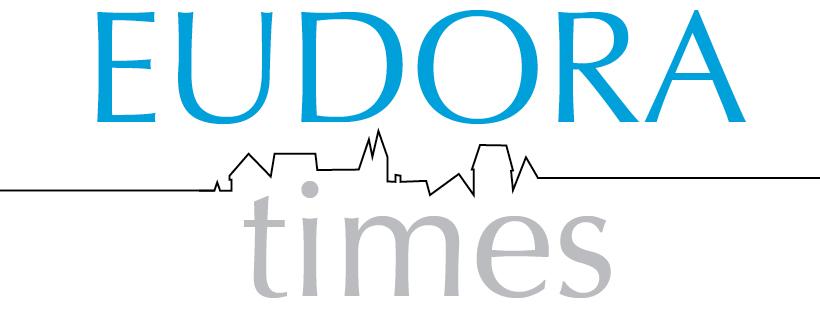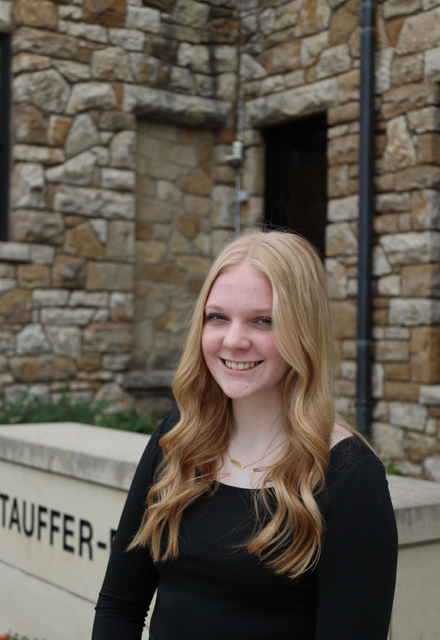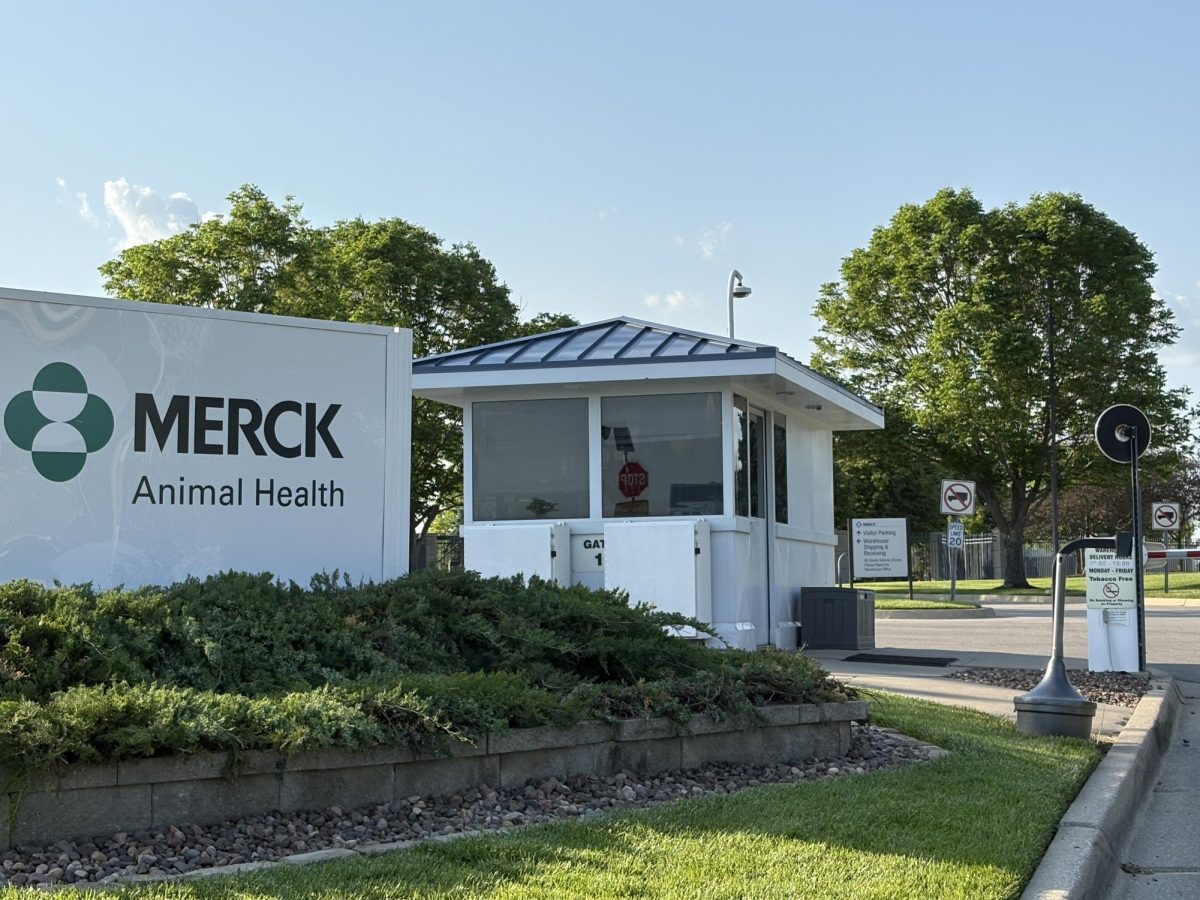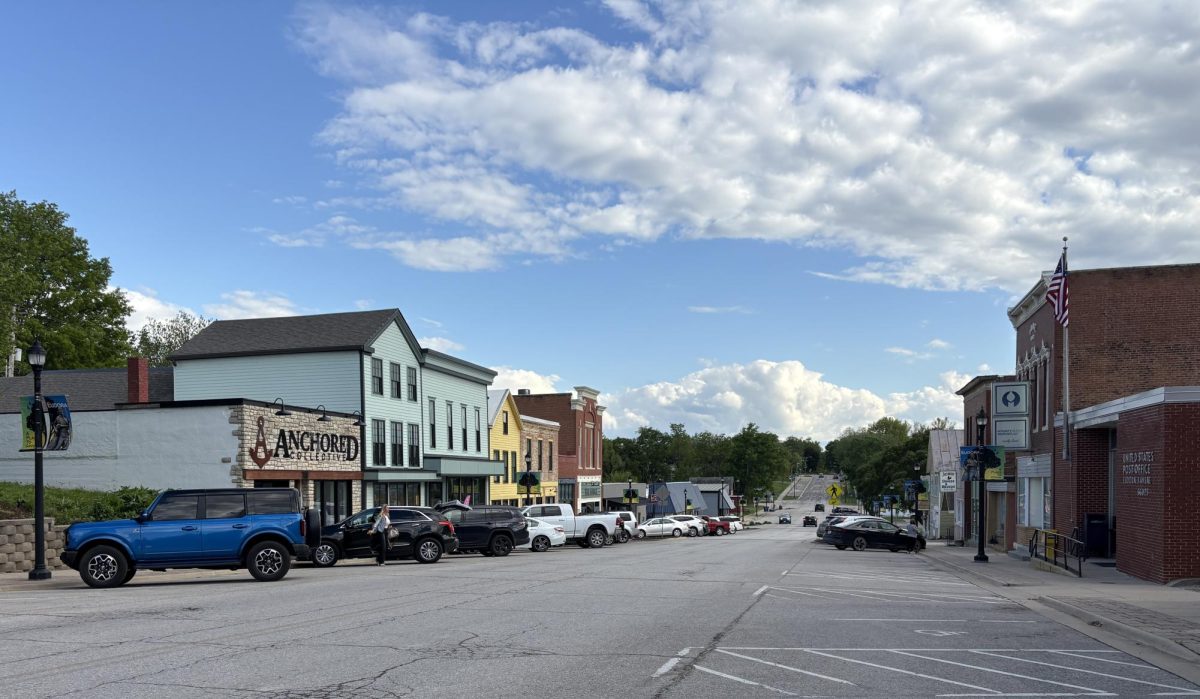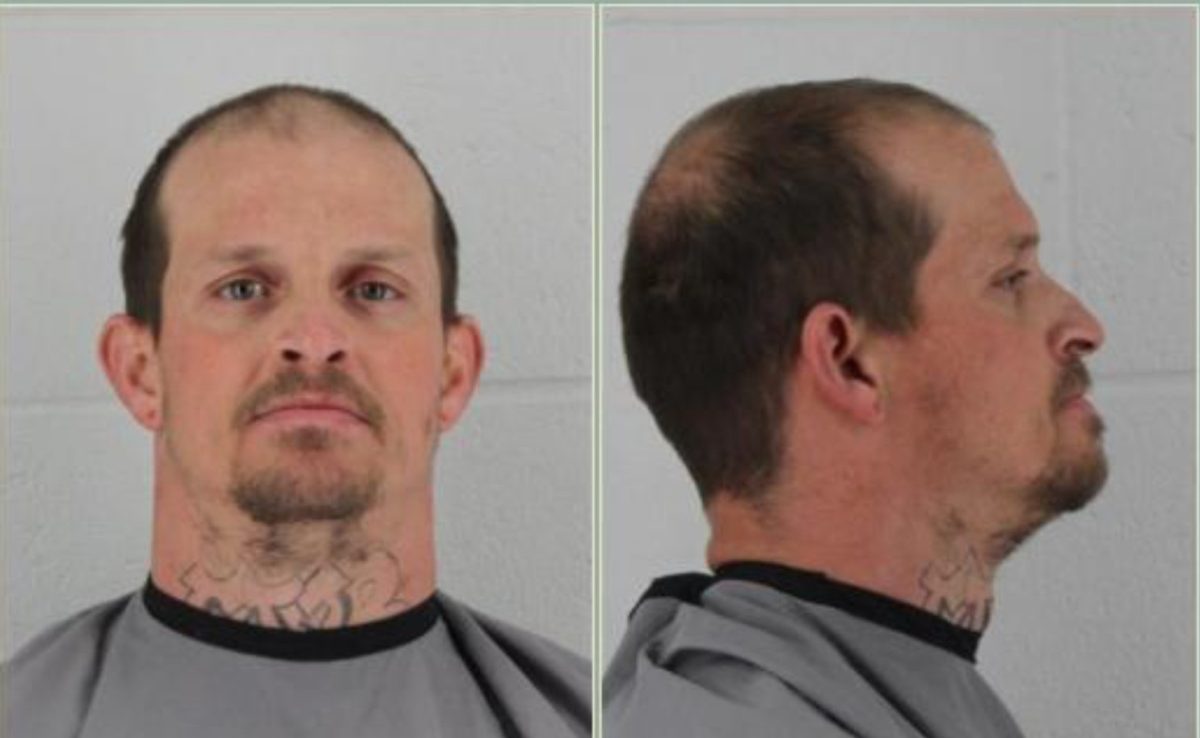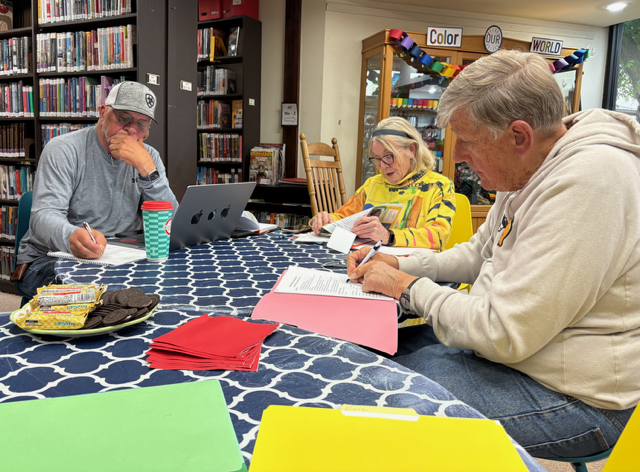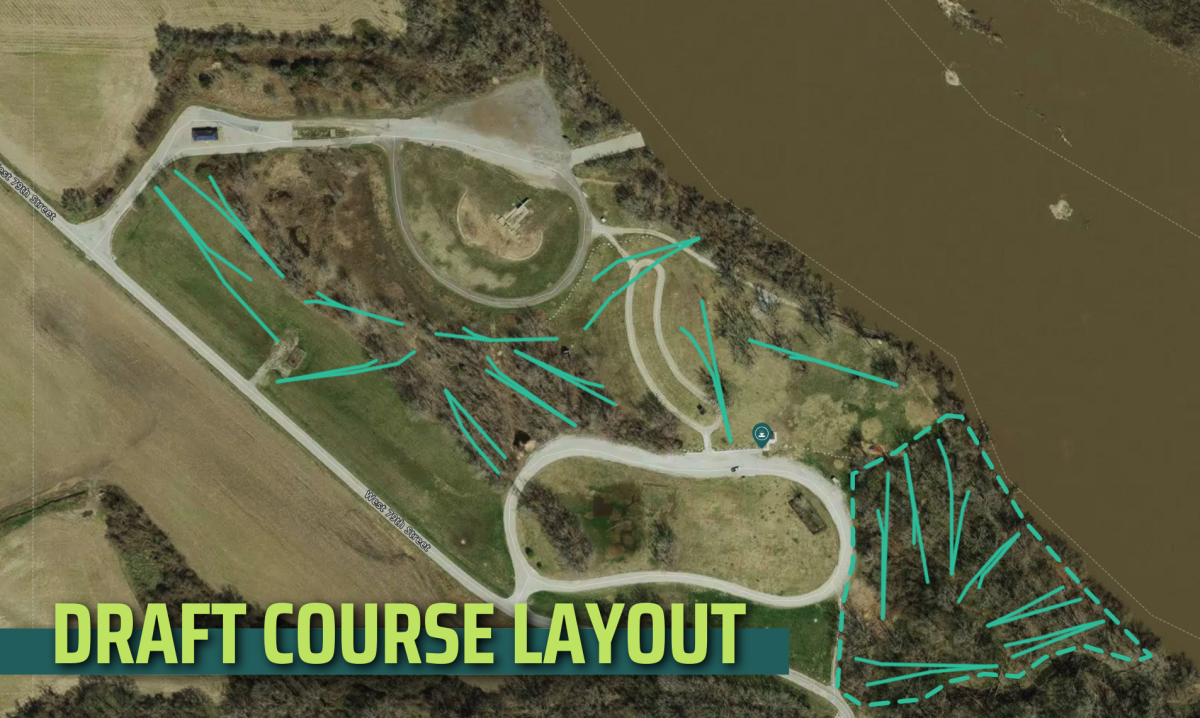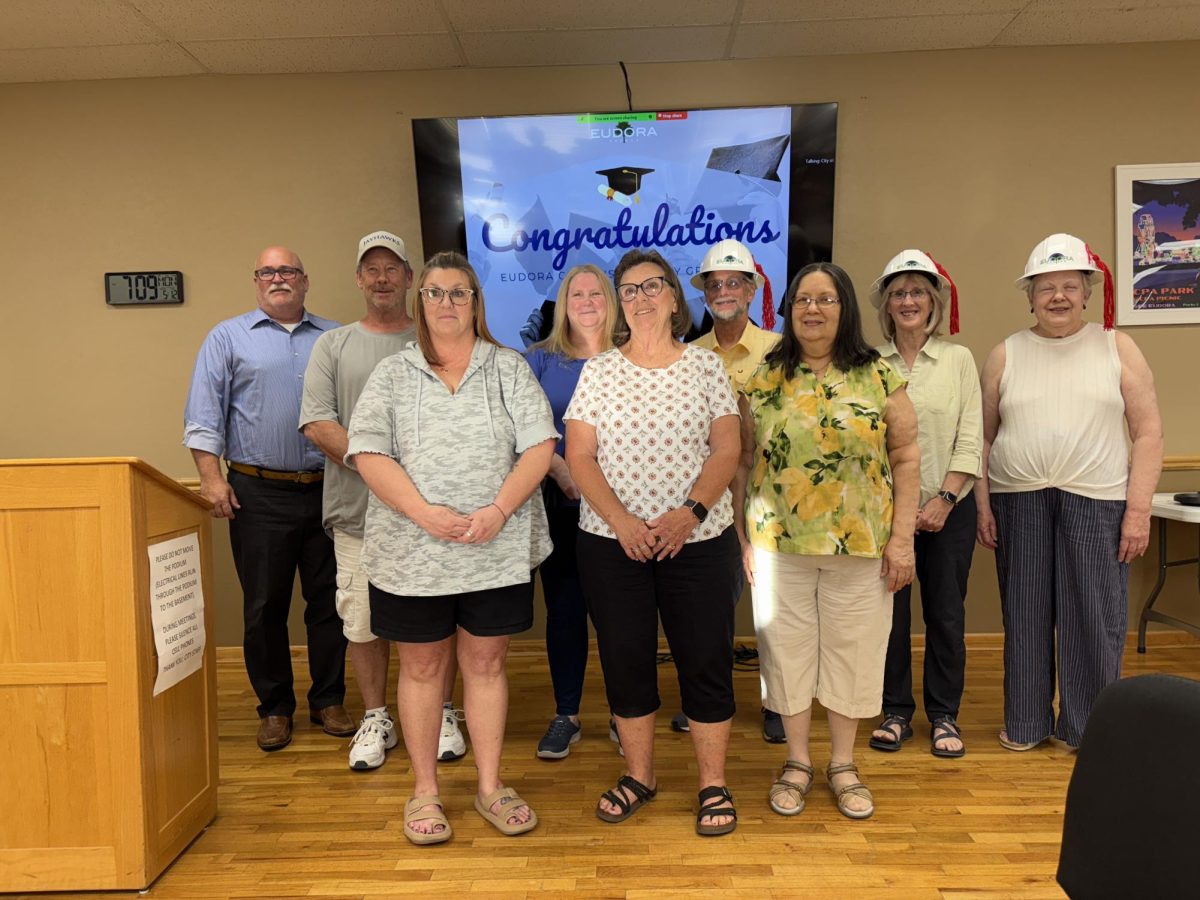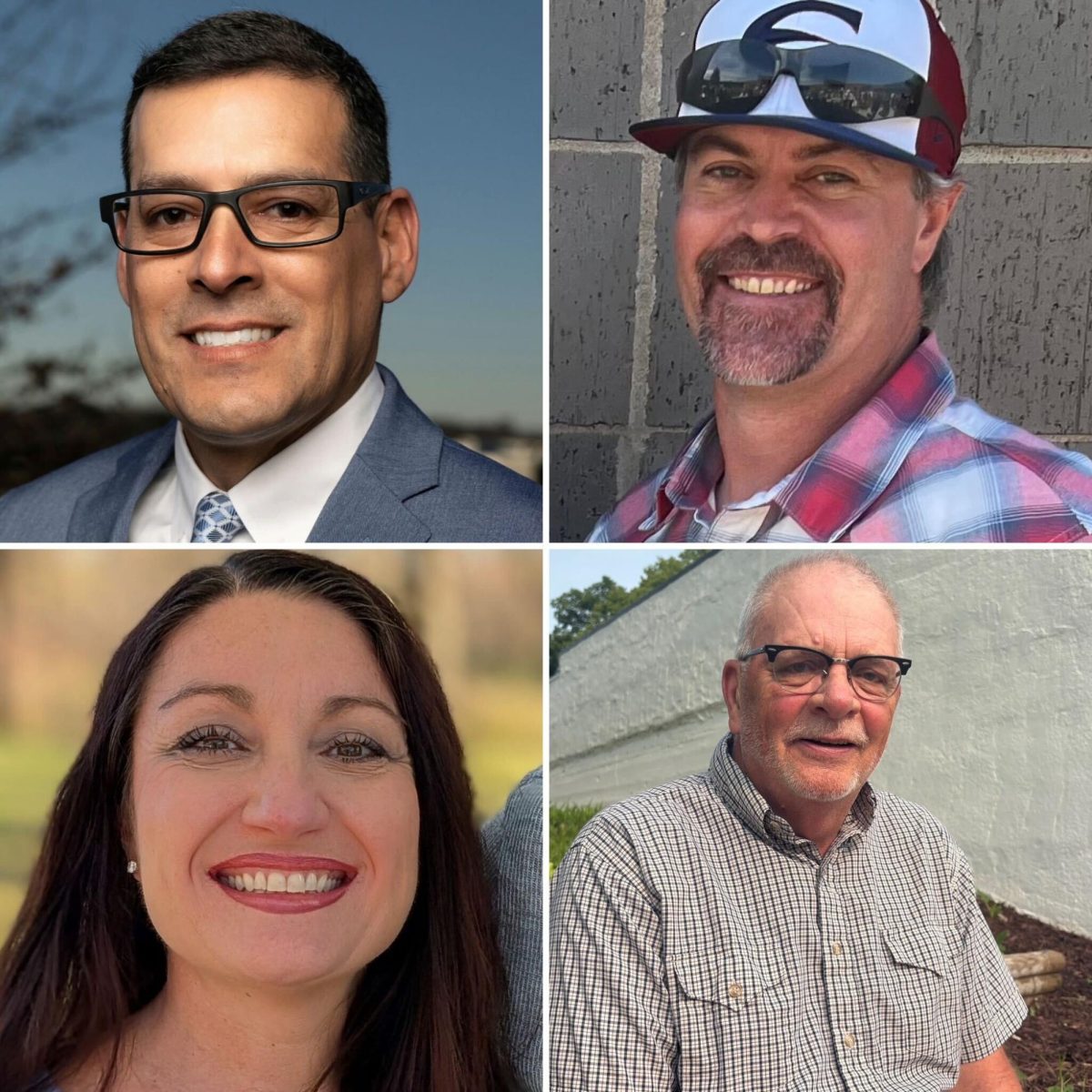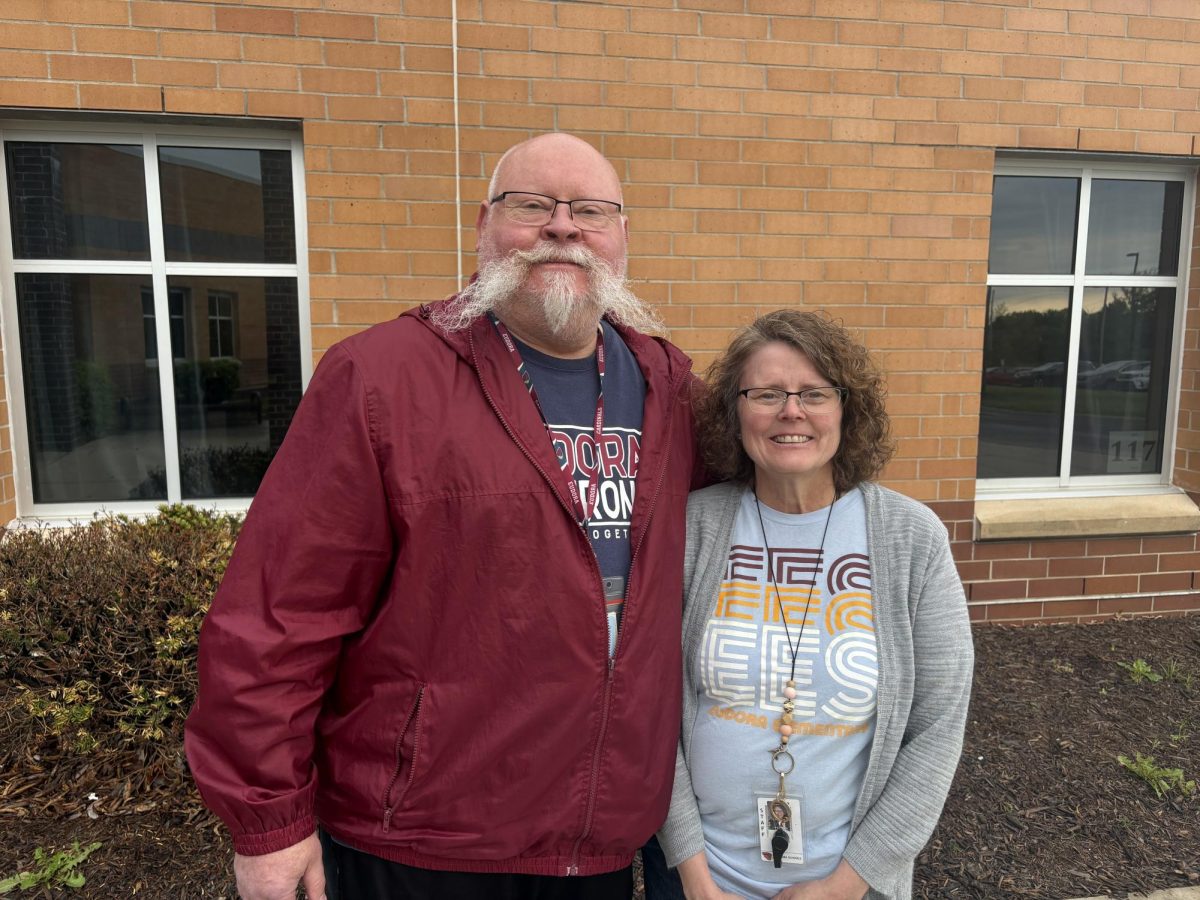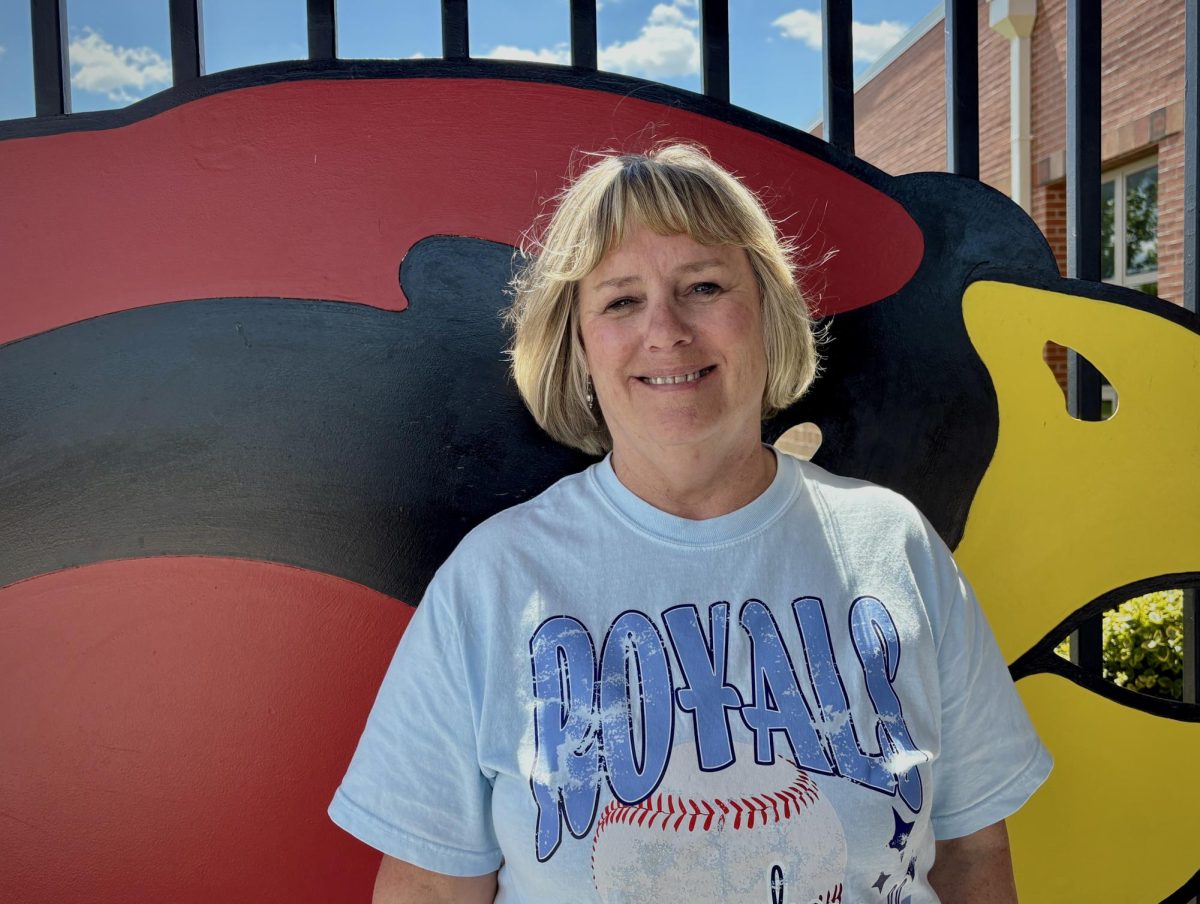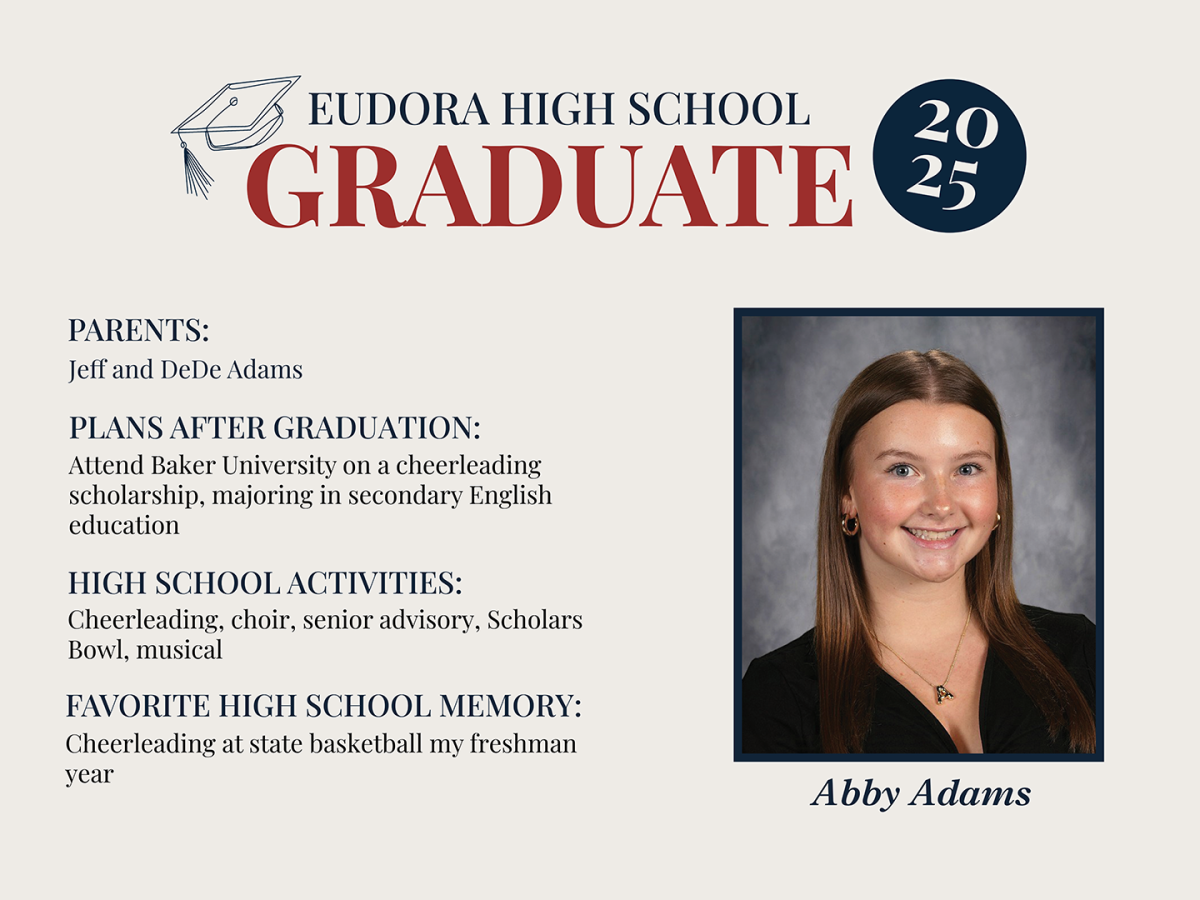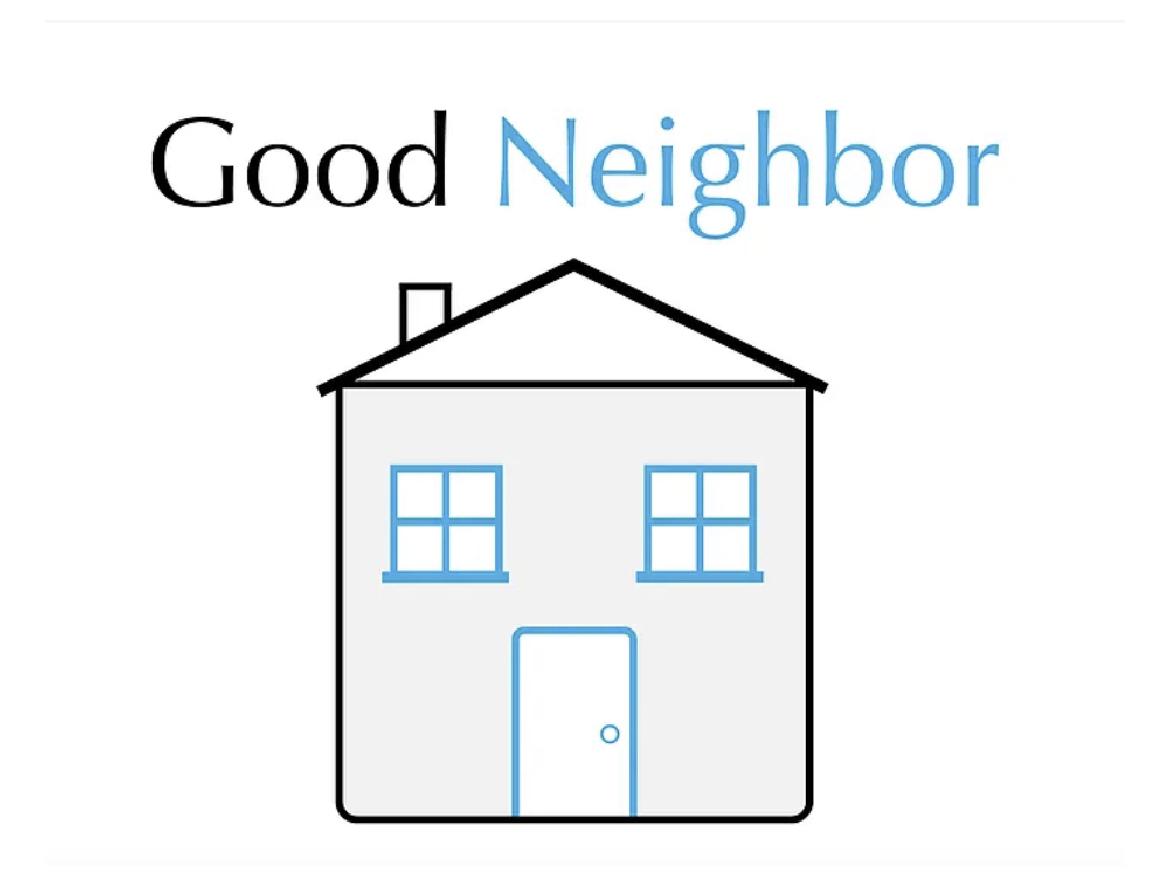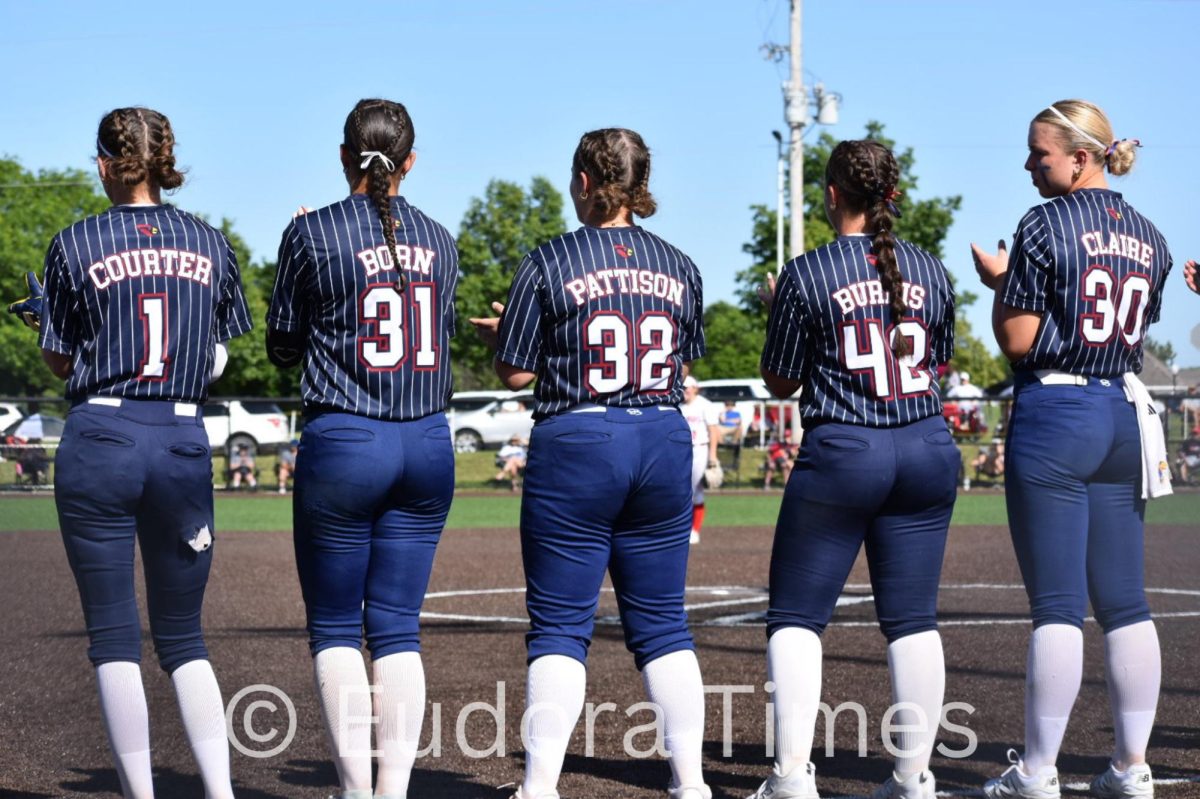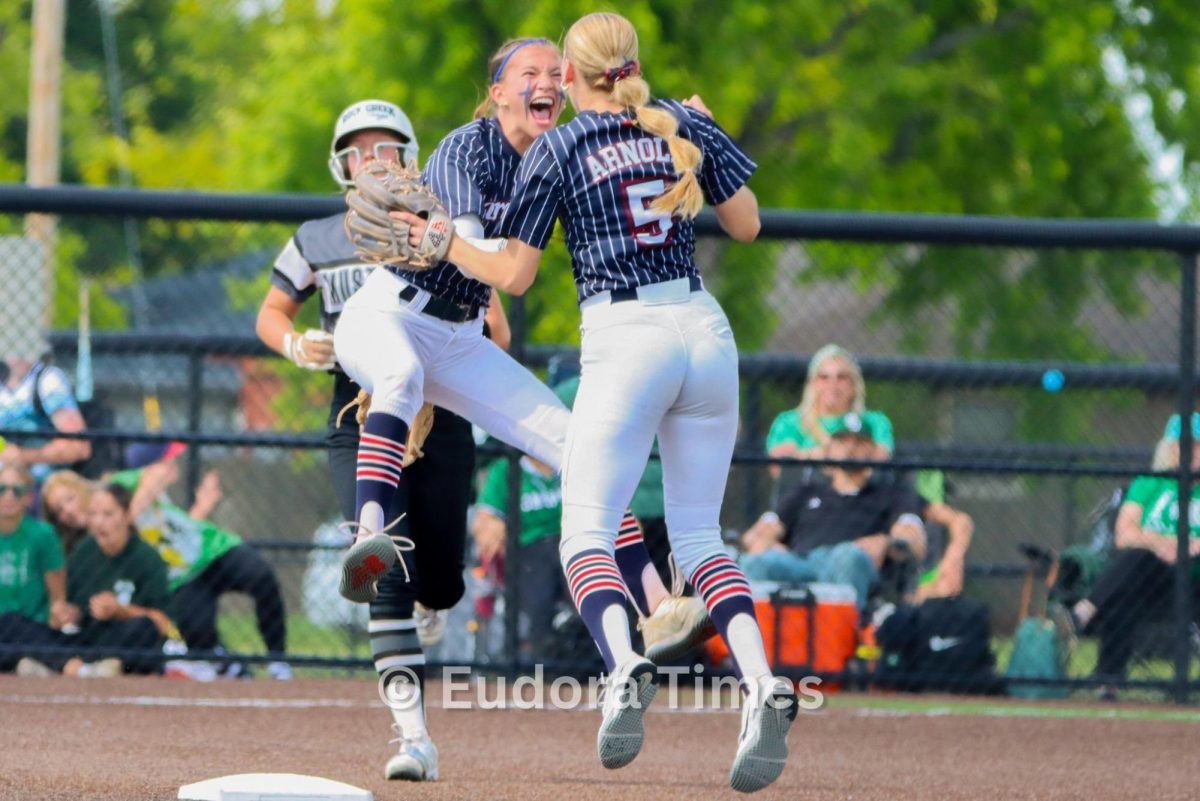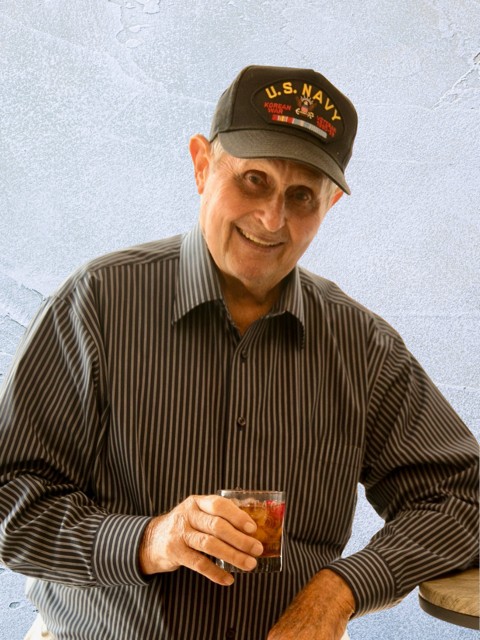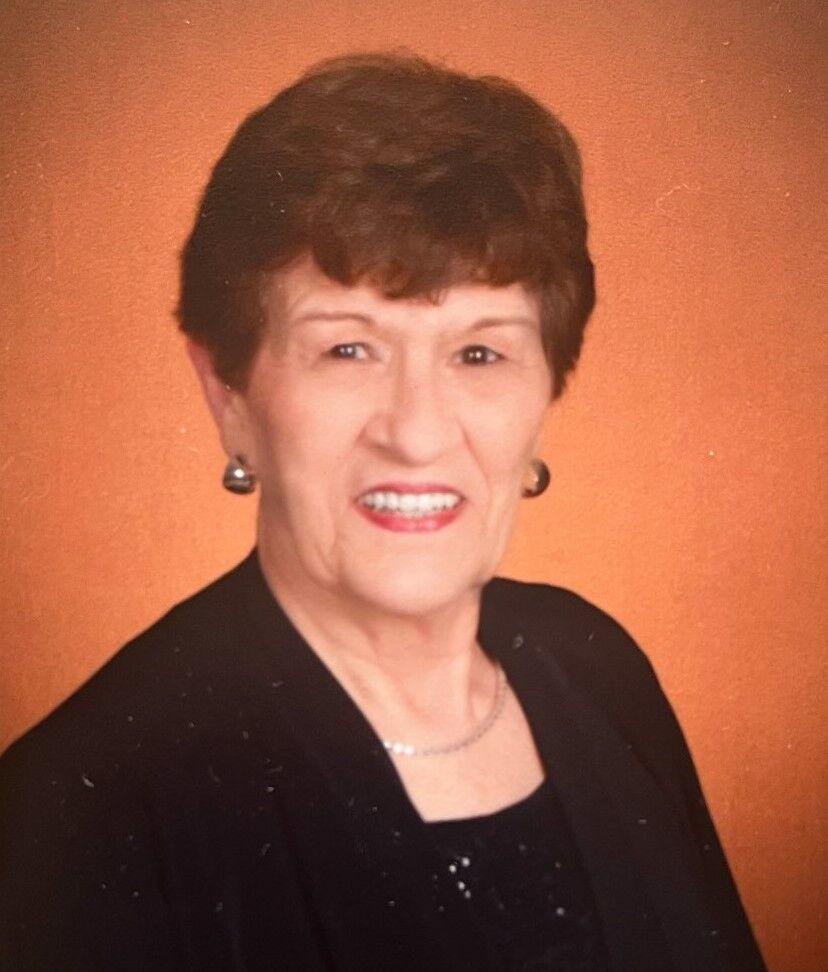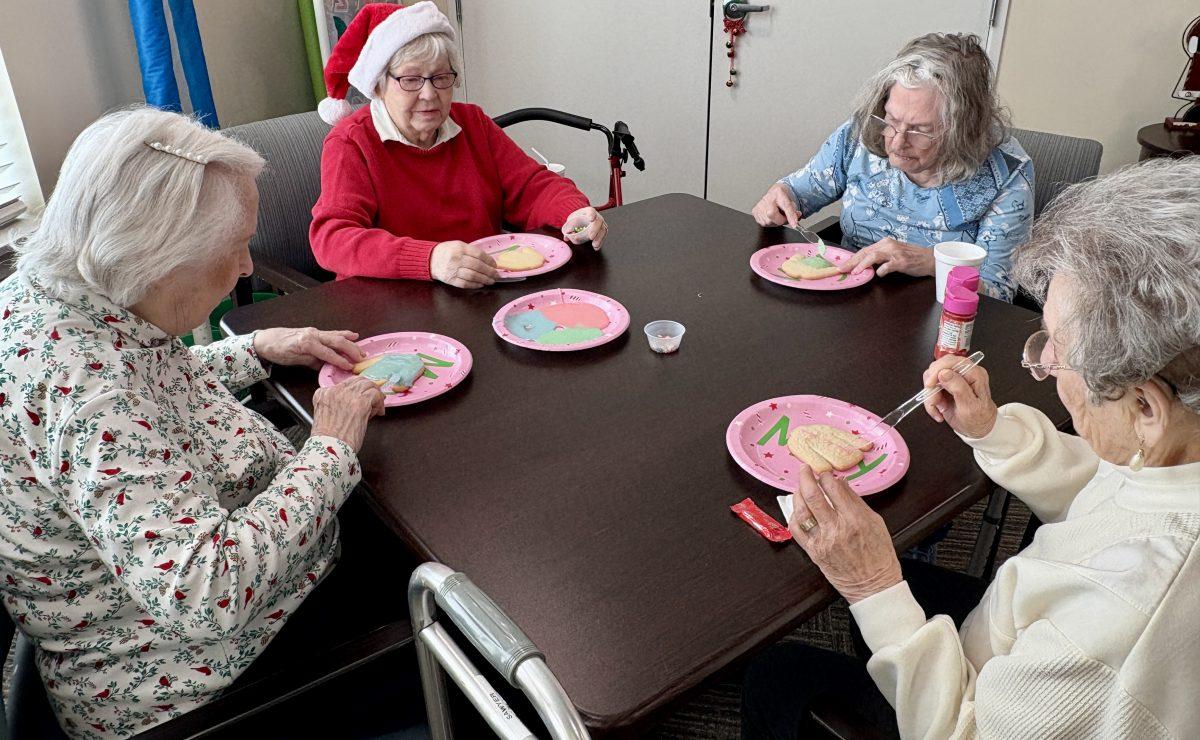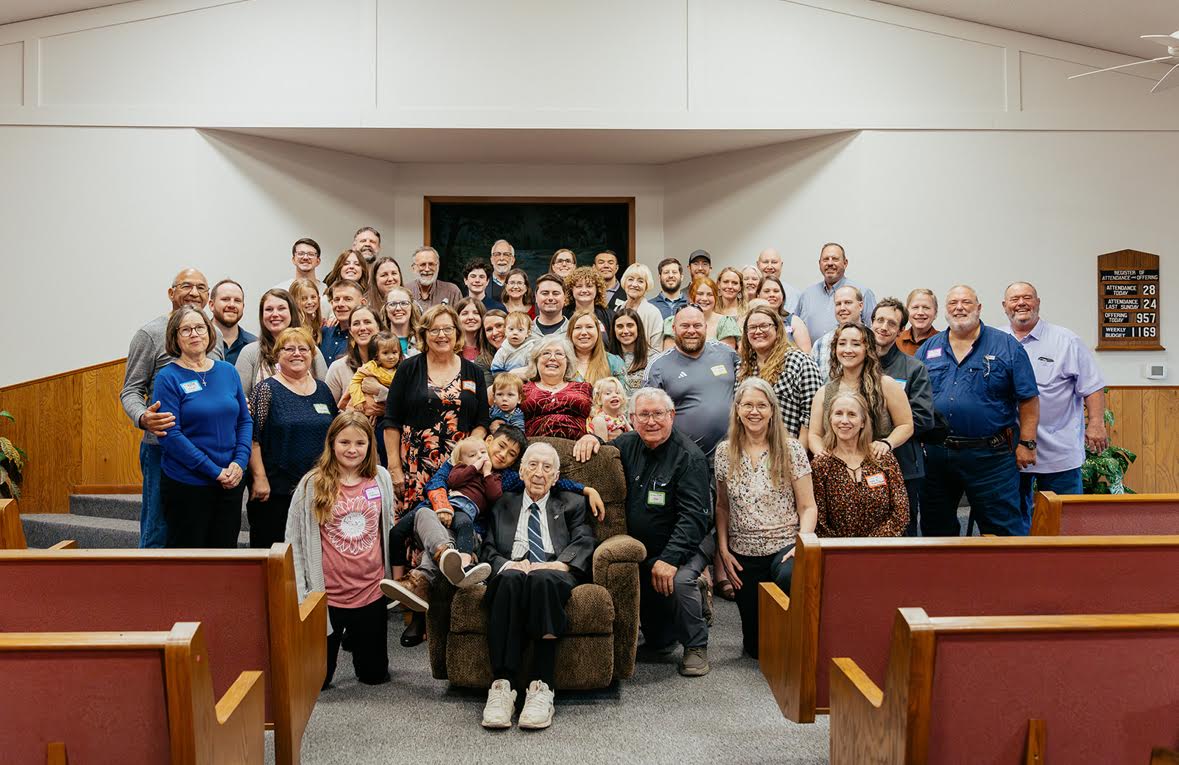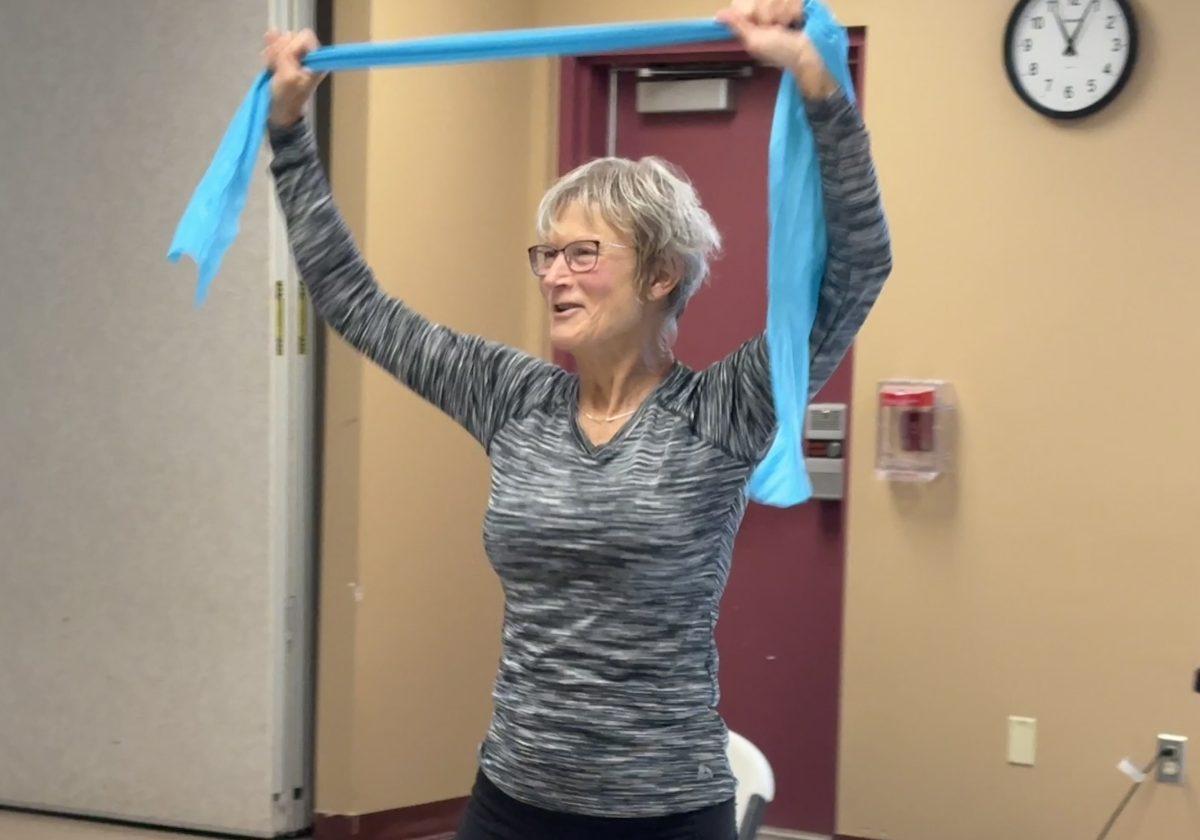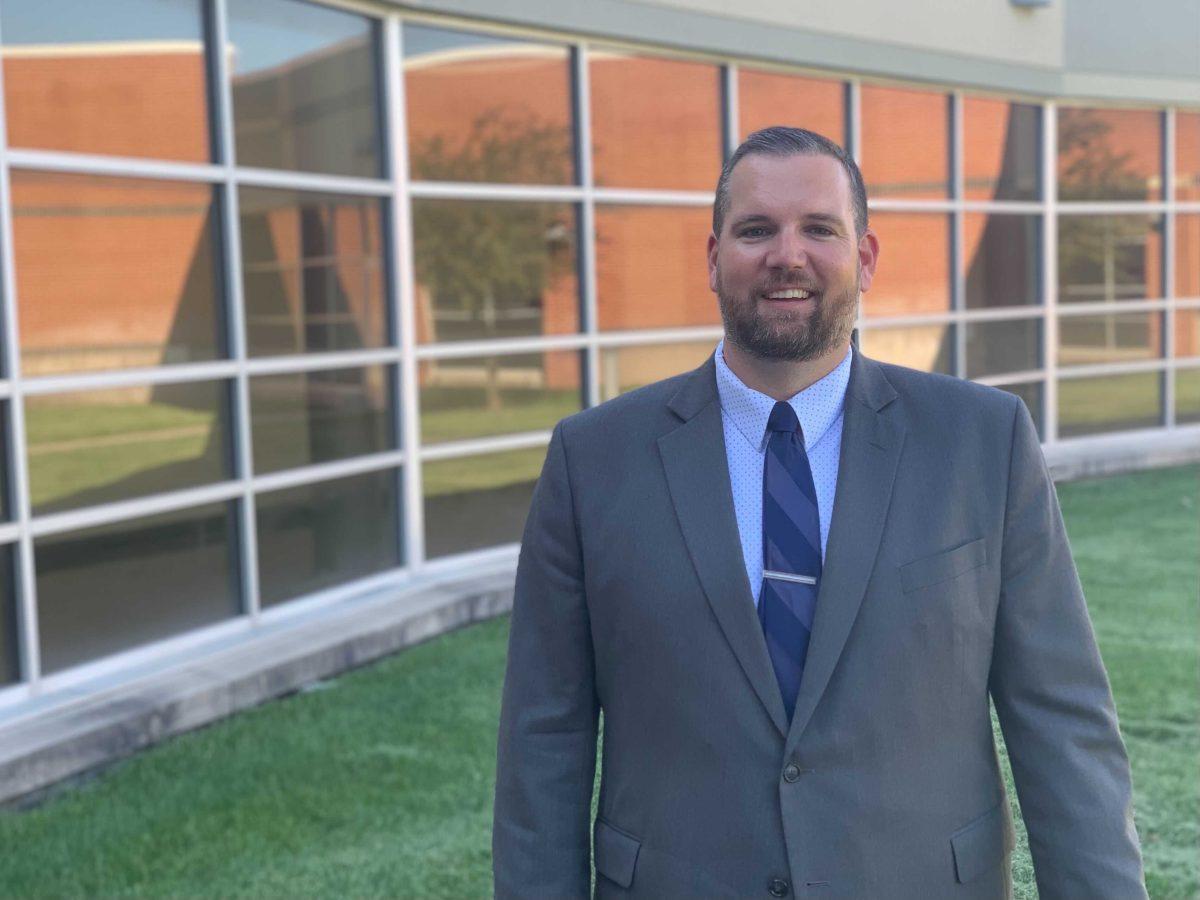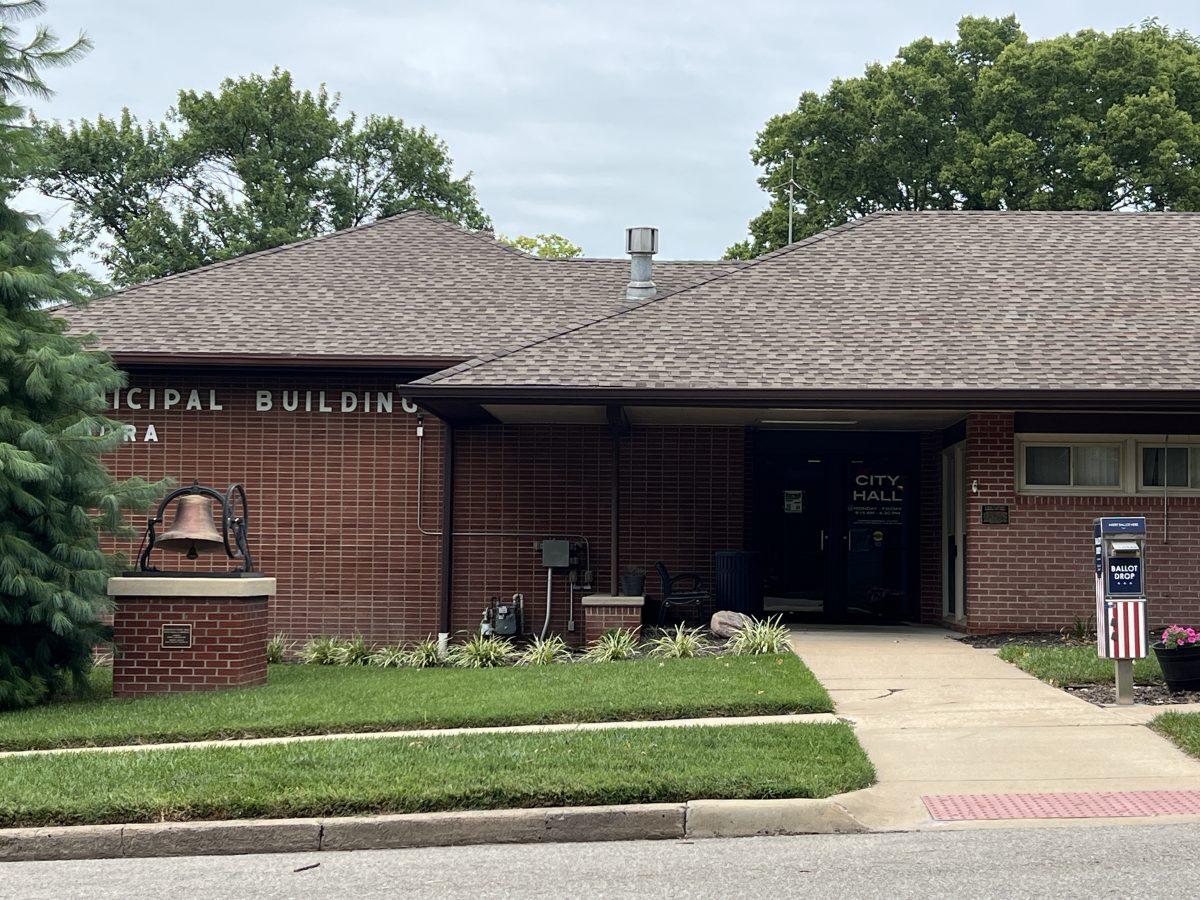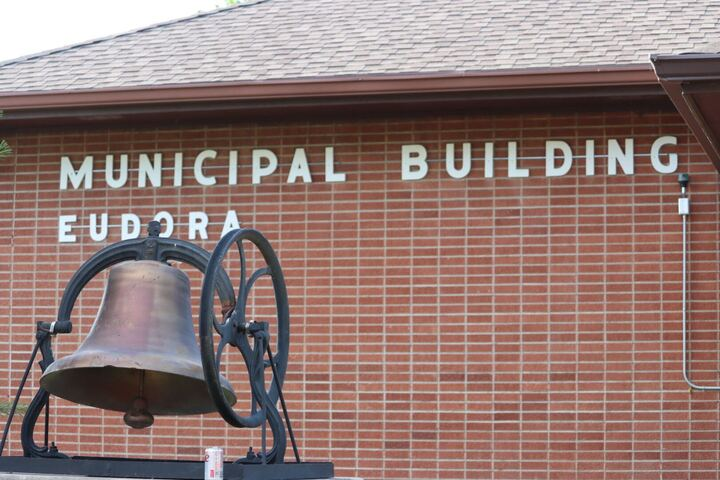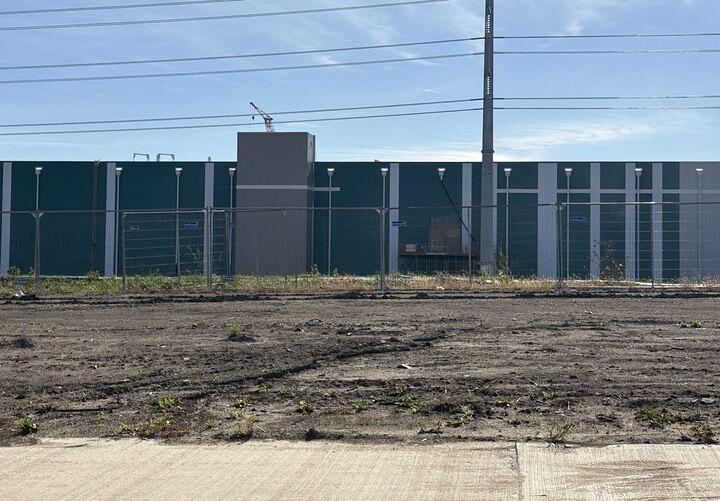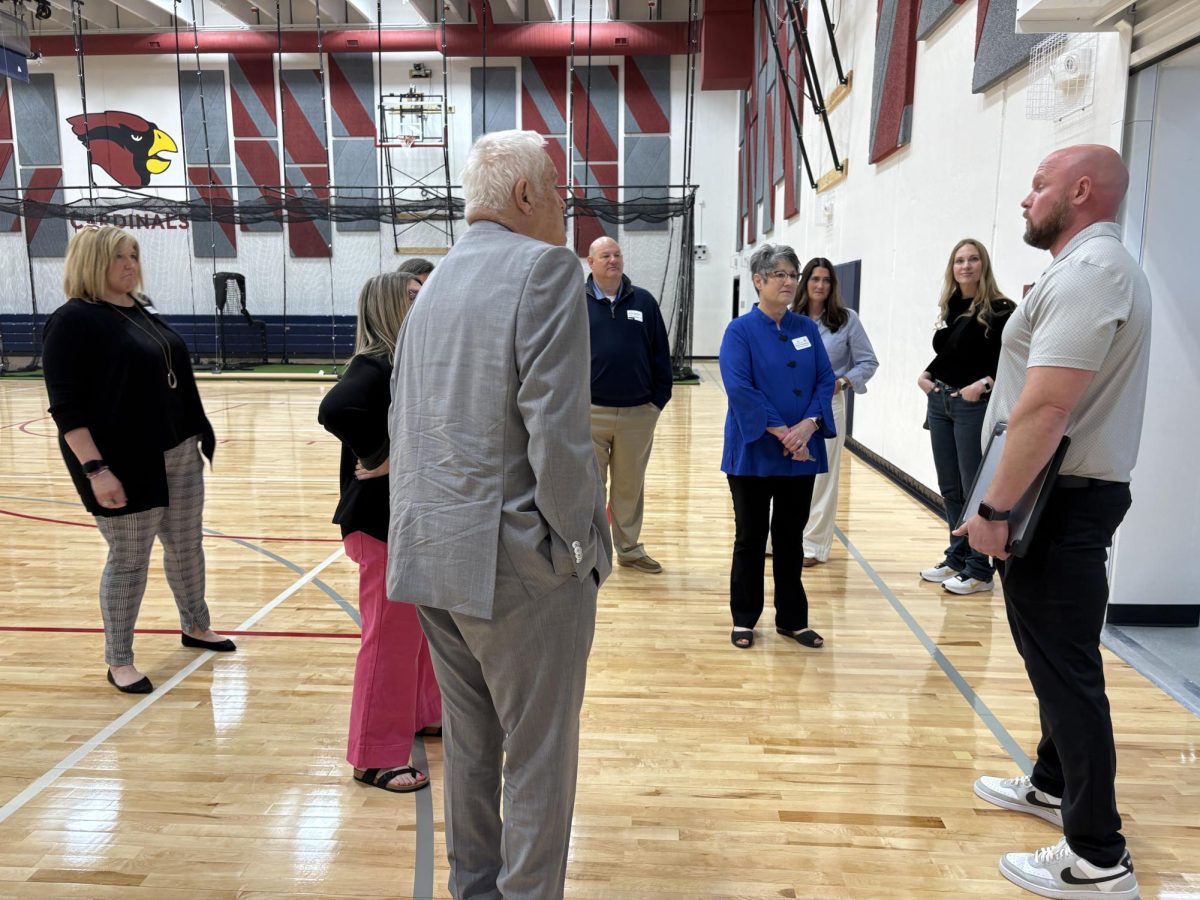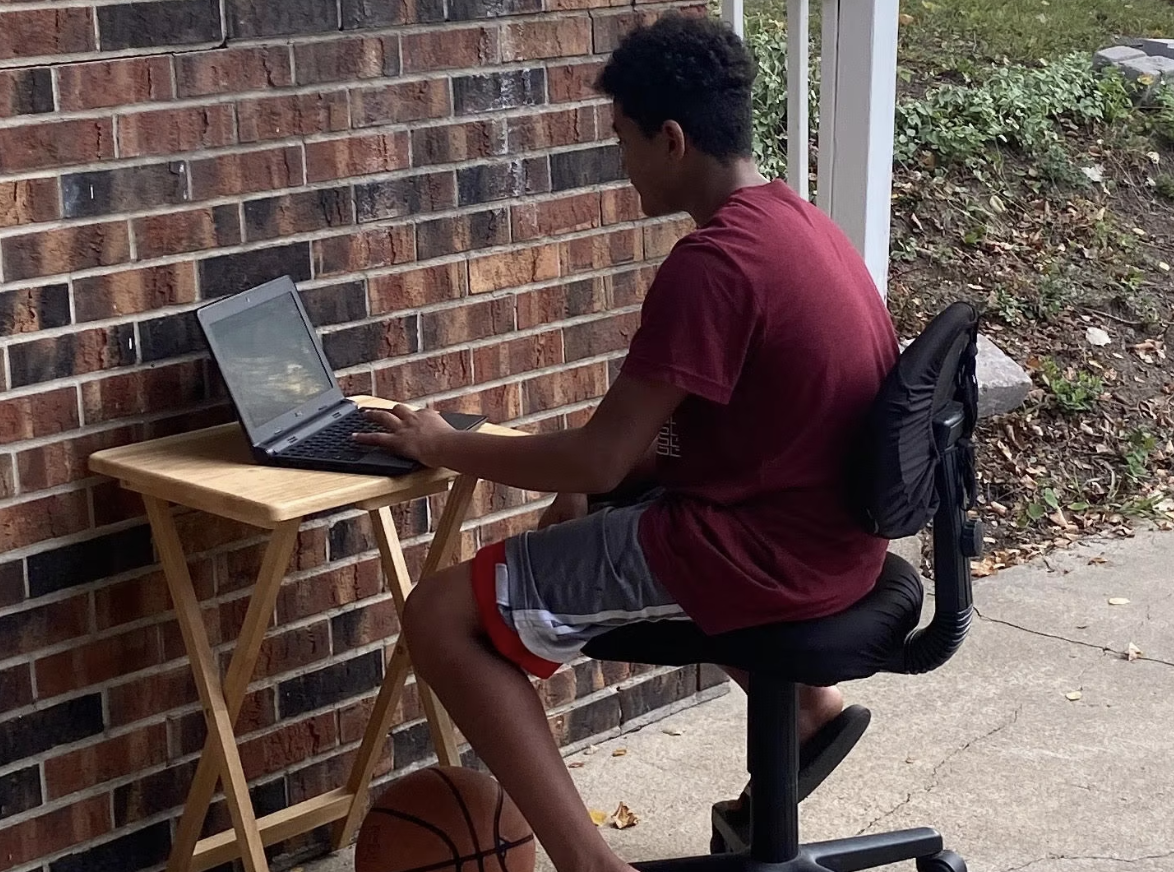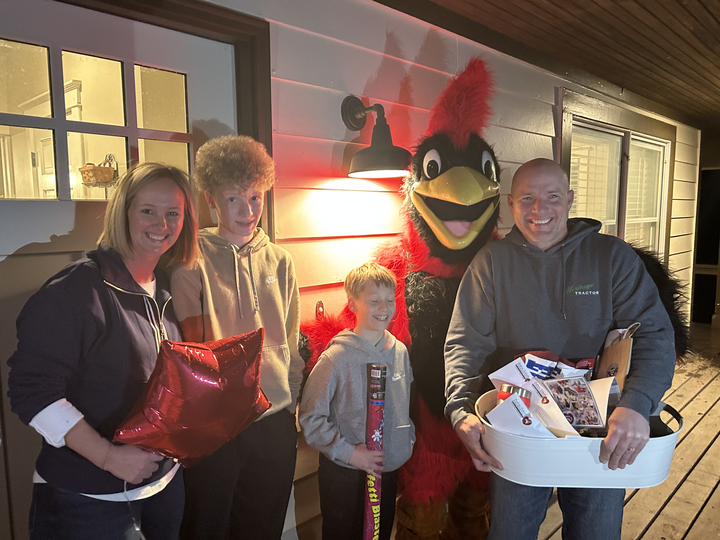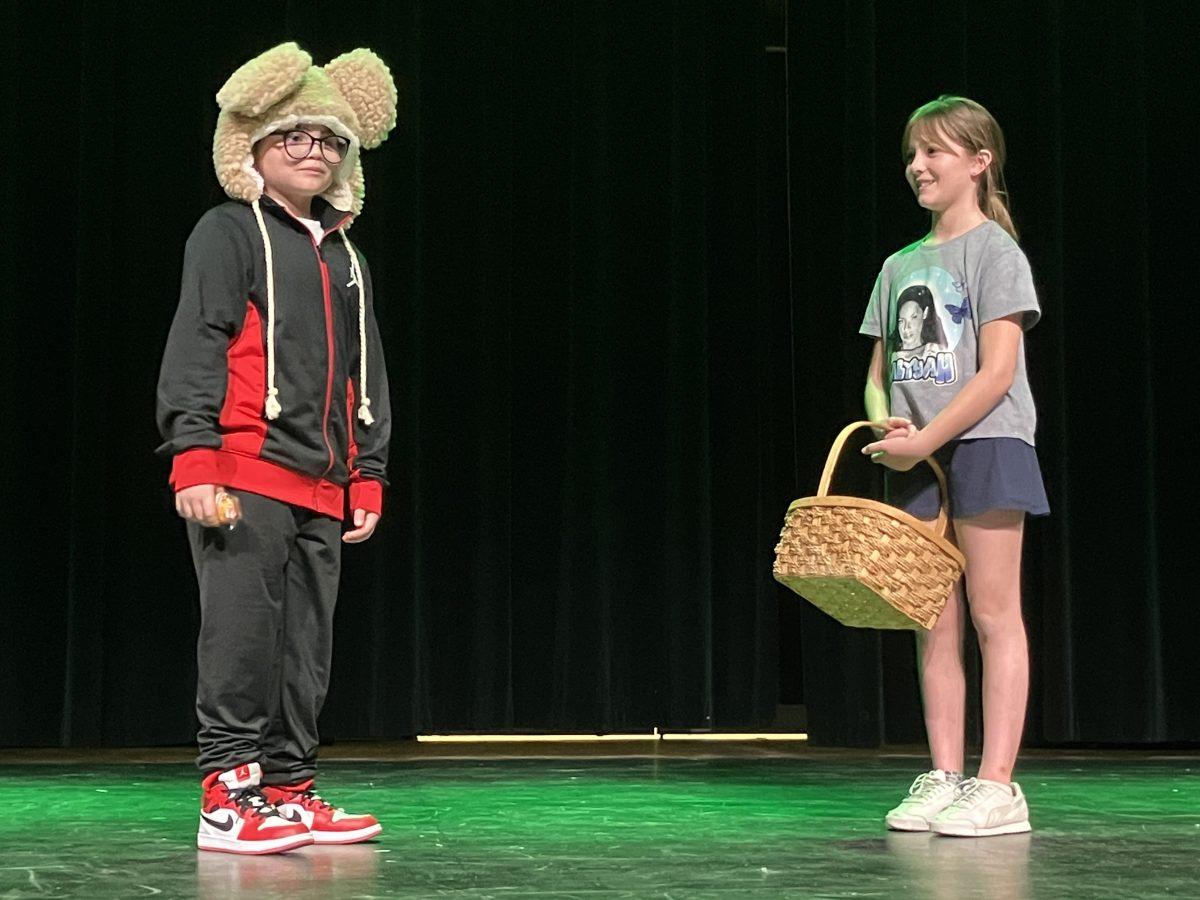Stu Moeckel, the third superintendent candidate to visit Eudora, aims to bring a shared leadership style to the school district if he’s chosen, he said in an interview with The Times Friday.
Moeckel is the current superintendent and principal for seventh through 12th grades at Madison Virgil Schools. He visited with Eudora residents Friday.
The Eudora Times created a list of questions to ask each superintendent candidate as they came into town. Interviews were edited for brevity and clarity.
Why are you interested in being superintendent in Eudora?
You know, as I said in the video before, I think Eudora is a perfect community, a town that has that small school feel, but it still has so many things for your kids to do and so many things for families to do. You know you’ve got a gateway to Kansas City, you’ve got a gateway to Topeka — it’s just wide open. And it’s such a — it seems like such a progressive town, and after touring all day and meeting everybody, they just seem to really super value education in this community so I’m very excited about that.
What do you see as the strengths of the Eudora School District?
Well, No. 1, their infrastructure. And I know that it’s a little tight for room, but there are amazing buildings. One of the biggest strengths is just the people I met today with the admin team — the board, obviously, values education and has a great vision. That’s always important to a community and its growth. And I think that there’s just so many good people here and they built such a great culture of values in education, as well as relationships that are just important to the success of the district.
What do you see as potential areas that could use improvement?
Well, it’s so hard to say, you know, when you’ve only been here for a day. I know, no matter where you’re at, the biggest improvement I hear in every district is always going to be communication. There’s always someone who doesn’t quite, you know, hear what you’re saying. And then, with any district as well, it’s going to be trying bridging that gap of learning loss, dealing with the pandemic. And then coming back together as a community after the pandemic. Because we’ve, you know, it’s been 100 years since we’ve had a pandemic. We don’t know what it’s going to be like to come out. And so if we come out stronger, and together as a team, then we’ve got the possibility.
Why do you think that you’re the best person for this job?
I think I’m very passionate about education. I love working with communities and community groups, and I love supporting and working with our teachers, and obviously, being around students and helping them succeed. So I don’t know if that makes me the best or worst, but I know that I can bring some things to the table, which is exciting.
What are some specific examples of successful initiatives you’ve done in your current district?
In our current district — So when I first got there, we saw a need to enlarge and expand our early 3- and 4-year-old program. And so what we started was our Early Learning Center with the vision of the board and the support of the community. We built that up to about 30 kids that are utilizing that. Anything we can invest in our young learners sets them on a path for success as they enter into kindergarten, first grade and so on.
And then one of the things that for the community that was important to them was an ag program. So we were able to hire an ag teacher, and we’ve been expanding that every year. We doubled our people involved in FFA and ag program this year after year two.
And then we also started what we call the Navigating Student Centered Achievement, which is basically juniors and seniors will decide: Do they want to go through the tech school route? Do they want to do some what we call dual credit, which would be through Butler [Community College]? Or do they want to do a career study, where they’ll go work for a job in the morning, whether it be a paid internship or not?
What we ran into with that, though, is we couldn’t ask kids to take those classes who couldn’t afford it. So with the super supportive community, we were able to raise a ton of money for our jumpstart grants. And so instead of just for those in need, we just paid for everybody to get all their new credit as well as their tech so a student can graduate Madison High School with 15 to 18 credits for free that will transfer to any Board of Regent school. And that’s only because of the vision of our board and the donations of patrons, like our Lions Club, our Masonic group and then just some individual patrons who saw that there was a value in that. So that’s been something we’re really proud of for our students because it gives them such a head start as they go into their careers.
What do you think are the biggest challenges facing K-12 education right now?
I think the biggest values — or the biggest struggle the K-12 is going to have is just the unknown nature of where we’re at with the pandemic, as well as the hesitancy, you know. We know some students lost some stuff, and so the hesitancy of, ‘Where do we go going forward?’ And I think, you know, it’s going to be a challenge to communities, parents, boards and schools to try and meet those needs while also continuing to move forward and potentially finding better ways to do things that we learn from the pandemic that we can then bring in. It’s exciting, but it’s also a little bit nerve-wracking because it’s not new it’s — I mean it’s not normal, it’s new.
What is your leadership approach with teachers and staff?
I think I’ve always been a fan of shared leadership — getting as much input as possible when it comes to decision-making, supporting teachers and challenging them to think outside the box and think innovatively. And then supporting them in, ‘Hey, if that didn’t work. Let’s try something again.’
Allowing teachers and giving them as I call, ‘Permission to take a chance.’ Permission to take a chance and then if it doesn’t work, we try something else. And then really big — I always talk to our staff about building relationships with kids. Because that’s the first thing that starts in education and we’ve got to build those relationships before the learning begins.
Coming off the pandemic, how would you specifically support teachers and staff moving forward from this difficult year?
I think the first thing is just acknowledging how hard this difficult year has been for staff members, whether — if they’ve been at home, teaching virtually or whether they’ve been in the building. Because the uncertainty is, ‘Is someone gonna walk into my classroom and tell everybody, they’ve got to go home and quarantine? What’s tomorrow look like?’ The unknown, you know.
We went from years of knowing Tuesday is Tuesday, Wednesday is Wednesday. Now, it’s just so unknown. That adds a lot of stress to teachers, as well as throwing more on their plate. I think the best way is to try and take as much off their plate as possible, and support them and let them know that, ‘Hey, you know, we care. We’re here for you.’
I think the pandemic really showed communities all over how vital education is that has nothing to do with academics, just all the things that schools provide to our families and students that has nothing to do with math and reading.
Focus groups for this position noted that one of their top priorities they want the new superintendent to tackle is creating more competitive salary and benefits packages to attract and retain staff members. How would you go about this potentially?
You know, without looking at the budget, it’s hard to say that exactly. I mean no one teaches just for the money. They teach because it’s a calling. But nobody does it for a hobby either. So you’ve got to find a way to reward teachers and be competitive where you can. And so that may mean that you’re going to have to take a focus away resource wise from one thing and then put it toward something else, but I think anybody in their role when they feel supported and they feel like they make a difference in their job, I think the rest of it will fall in place.
Improving diversity and equity was another priority from the focus group and survey input. So what would be your potential strategies in this area?
I think it starts with listening, letting everybody know that they have a seat at the table and their input is valued. And listening to their ideas. And then there’s never — it’s never a bad thing to have training in equity. It’s never a bad thing to have an understanding of diversity. You know, our teachers live it every day, but I know there’s always going to be families, whatever walk of life they come from, that feel like they’re not heard. So giving them a seat at the table and listening and letting them know that their input is valued.
Focusing specifically on students, how would you work to improve the education experience for students?
It first of all comes down to relationships. They have to know their teachers care. I think students need to be challenged, but I also know that each student learns in a different way. So finding what’s the best way for that student to learn and then letting them run and staying out of the way and helping them be the best they can be and then providing that support and that nurturing environment, and then providing any sort of resources or materials they need so that when they’re hungry, they can feel like they’ve got the information. They’re not just waiting.
What relationship do you think the superintendent should have with the school board?
That is a very important relationship built on trust, communication and obviously shared leadership. But the School Board always creates the vision and the policy. And the superintendent is there to help facilitate that and work to meet those goals, as they go through with their team, their administrative team and their teachers.
And so I think that’s very important to any community that the School Board trusts the superintendent, and then likewise, that School Board is very informed and feels like they play just as big of a role as than anything else in the education of the children.
What relationship do you think the superintendent should have with parents?
Well, I think the superintendent should always be approachable to parents. I think they should always be able to reach out and visit with the superintendent. Obviously, there’s a chain of command to follow. You know, have you followed with the teacher? Have you followed with the administrator?
But I think that the superintendent needs to be able to be visible and then be able to have parents so that there’s no concern about walking up and visiting with the superintendent and letting them know, ‘Hey, that we have an issue or that we feel a certain way.’ And I think that’s important that they be out there and be an important part of the community.
How do you plan to be involved in the community?
Well, you know, in my current role I’m involved highly in the community, whether that be through different clubs and organizations, whether it be activities or any sort of downtown. You know, I meet with the Ministry of Alliance — in our community, we have about five or six churches — so I meet with them to try and visit about, ‘What do we see? How can school help them? And how can they help the school?’
I think that the superintendent is kind of a representative of the school to the community and so being out there and being visible and supporting students and teachers both in school and outside of school is important.
See The Eudora Times’ other story about the third candidate here.
Reach reporter Nicole Asbury at [email protected].
To donate to support our community journalism, please go to this link: tinyurl.com/y4u7stxj
